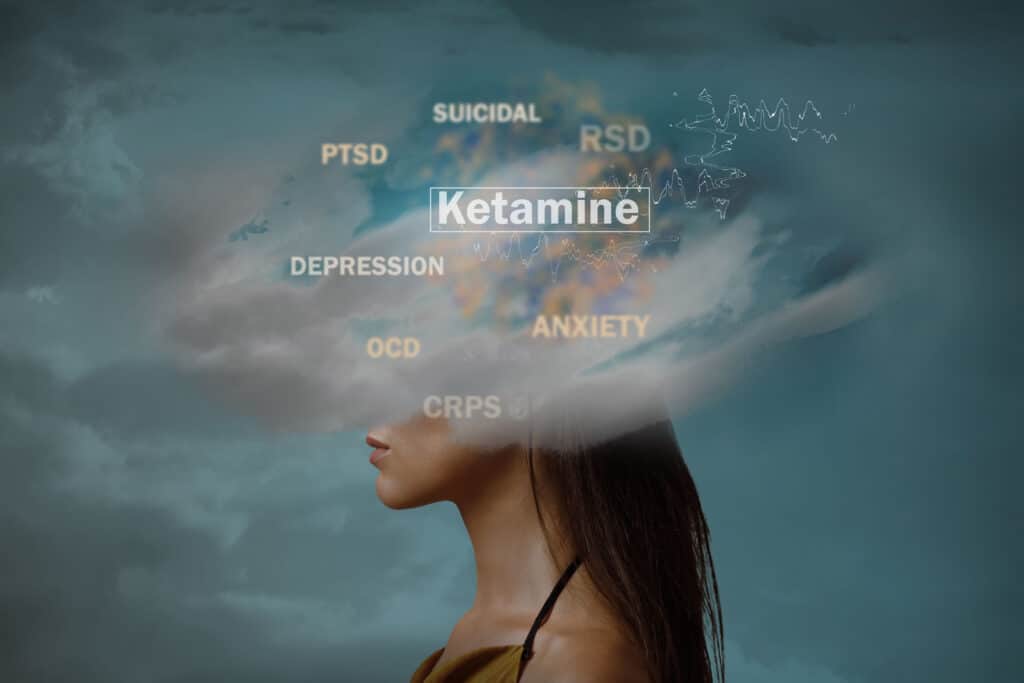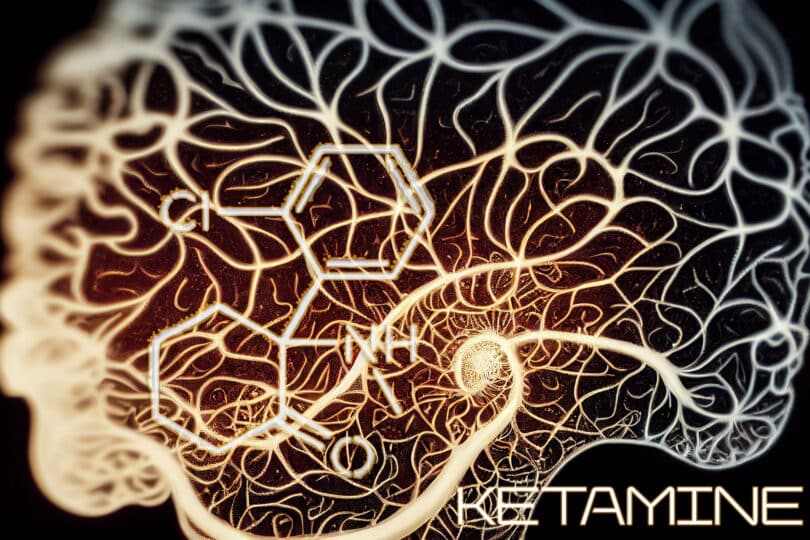The US government does not like industries it cannot control and regulate. Case in point, ketamine; and a new warning by the feds to crack down on the industry.
FDA warning letter about ketamine
Sometimes the US government can’t do much but hope people listen to a directive. Such is the case now concerning the ketamine industry, and a recent warning letter issued by the FDA. The letter came out on October 10th, 2023. Unlike some letters that I report on that have to do with warning producers about legal consequences, this letter is a bit different; because the circumstances are different. This letter is geared toward consumers and practitioners.
Its not a cease and desist letter, like the ones that get sent to cannabinoid companies that sell products like delta-8. Instead, the letter acts more as a warning for the health and well being for those interested in ketamine. The letter highlights the following points:
- It reminds that ketamine is not an FDA approved medicine for psychiatric disorders. It explains that the FDA has not decided that compounded ketamine – currently used for the treatment of a range of mental issues from depression to PTSD to OCD, is safe for these uses.

- It’s second point is that compounded drugs in general are not FDA approved. A compounded drug is one that’s prepared specifically for a client. These medications are tailored to the particular needs of an individual by a medical professional; something that is offered at hospitals or pharmacies. They are not standardized products. It goes on to stipulate that compounded medications can be okay, when used under the care of a healthcare provider.
- It’s third point is that using such compounded ketamine medication should always be under the supervision of a doctor; to ensure sedation, dissociation, and vital signs like blood pressure, don’t get out of whack. It warns of serious adverse events with these specific things.
- Then it goes on to push its own ketamine (esketamine) over other ketamine products. In fact, it says that while other products can be cause for concern, that if you use the FDA approved medication in the right dosing, that the benefits outweigh the risks. The FDA is seemingly saying that things like “misuse, psychiatric events, increases in blood pressure, respiratory depression (slowed breathing), and lower urinary tract and bladder symptoms” are associated with non-FDA approved products.
- It’s last point is that it (the FDA), is not aware of any benefit of unapproved ketamine products, that make them better than FDA approved medications. I assume it means either its version of ketamine, or standard anti-depressants.
Does this make sense?
Of course not. An FDA approval means the government decided something is safe, with the implication that without this approval, something is not safe. But this is massively antithetical considering the ketamine industry is not associated with death or injury rates; while FDA-approved medications like fentanyl (and other synthetic opioids), are.
Beyond the FDA offering up such synthetic opioids, it also offers a host of benzodiazepines, and tons of other pharmaceuticals; like Tylenol, blood pressure medication, and antidepressants; which are fingered for their danger. Tons of FDA products are constantly recalled after approval, because of how not safe they are. Let’s be honest, the FDA still holds cannabis as Schedule I; which really speaks to the lack of logic and medical backing, of any of this.
The warning letter speaks of the ketamine industry as if its illicit; but its most certainly not. In fact, it’s a medical industry that requires prescription, and is overseen by medical professionals. This makes the bulk of the letter pretty useless; since its warning against non-medical use, in what is a medical industry. It warns of needing doctor supervision; but that’s a standard aspect of the industry, creating another moot point. Perhaps the FDA assumes you don’t know it’s a medical industry.

Beyond that, ketamine simply isn’t associated with all the issues the FDA warns about; or at least, not in any kind of detrimental way. It’s not a drug of high abuse; it has no death toll attached; and the reason it originally came into view, is because of its ability for use as an anesthesia, without causing major impact to functions like blood pressure. And the FDA knows all this, because there is a wealth of information on ketamine; starting with prisoner studies from the 1960’s, where it was first discovered to affect mood, and to anesthetize safely.
It’s last point, that ketamine hasn’t shown to be more effective than approved medications, is funny at best. For one thing, the letter pushes the government approved version of ketamine; which means it does see a benefit in it. And if it really wants to compare ketamine to antidepressants, well, ketamine routinely shows direct positive effects, whereas after all these years, no one can say anything definitive about the usefulness of antidepressants. In fact, there are plenty of concerns that they can cause mood disturbances.
The ketamine loophole
Why does this warning letter about ketamine really exist? Because the bulk of the ketamine industry, is not government regulated. It is medical, but it exists outside of the standard medical system. Ketamine stands as one of the few drugs capable of doing this; and has created a loophole for medical use beyond what its approved for.
The reason is that ketamine isn’t a Schedule I drug. It’s a Schedule III drug which is clear for medical use as an anesthesia. The thing is, the FDA allows off-label prescribing of any authorized drug. This means “the use of pharmaceutical drugs for an unapproved indication or in an unapproved age group, dosage, or route of administration. Both prescription drugs and over-the-counter drugs (OTCs) can be used in off-label ways, although most studies of off-label use focus on prescription drugs.”
The way it works is that “Once the FDA approves a drug, healthcare providers generally may prescribe the drug for an unapproved use when they judge that it is medically appropriate for their patient.” As it can only be prescribed by a doctor, the current FDA letter is essentially trying to tell doctors, what they should and should not prescribe. In fact, its attempting to tell medical professionals, what is safe and what is not.
Ketamine clinics function as legal medical clinics; that’s why this is not a cease and desist letter. All warnings within are fear warnings over safety, with no evidence offered to back anything up; and no warning of punishment. It does not include anything about legal backlash. It’s more like an attempt to put pressure on doctors to stop prescribing, and to get consumers afraid of going to ketamine clinics.

This is likely because the US government isn’t regulating the industry, which also means it can’t attach extra taxes, or regulatory fees. Much like with the vape industry, and the weed industry; no government wants products out there that it can’t collect on. While standard taxes are paid by ketamine providers, there is nothing supplemental attached for the use of ketamine, like sin taxes; and no specific costly regulatory fees to collect. And let’s be honest, considering the government approved version requires the user be on standard antidepressant to access it; few people are likely to care about it.
Is a letter like this likely to change anything? Not really. It only exists as a means of reigning in something that is already popular; and for which enough people have found benefit, to keep it going. These letters have done nothing to stop vape manufactures, cannabinoid manufacturers, or providers of these products; and that’s with cease and desist letters. A simple request with no threat? It’s like it didn’t happen at all.
Conclusion
Ketamine therapy might not be right for everyone; but there’s plenty of evidence of its usefulness; and it certainly isn’t associated with death or destruction, with addiction, or with bad behavior. The biggest negative of the ketamine industry is that its high pricing often rules out clientele; something which is most certainly an issue in the burgeoning mushroom industry as well.
Welcome to the publication. You’ve arrived at Cannadelics.com; an independent news source in the general drug space, here to bring you the lowdown on the most interesting stories going on. Come around daily to catch your updates; and sign up for our Cannadelics Weekly Newsletter; to access prime product promotions, along with the news.









